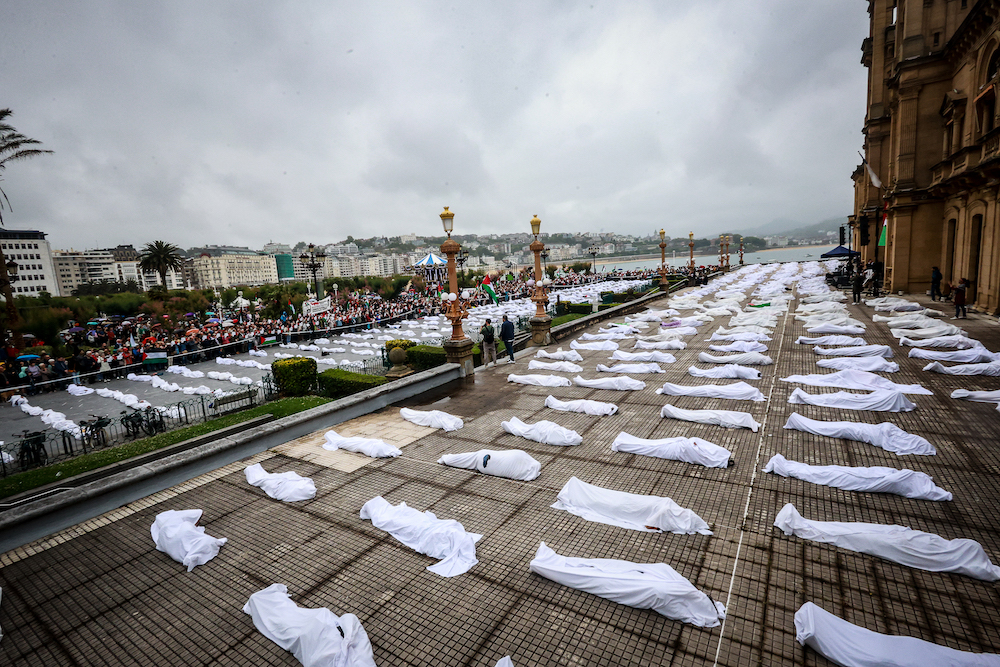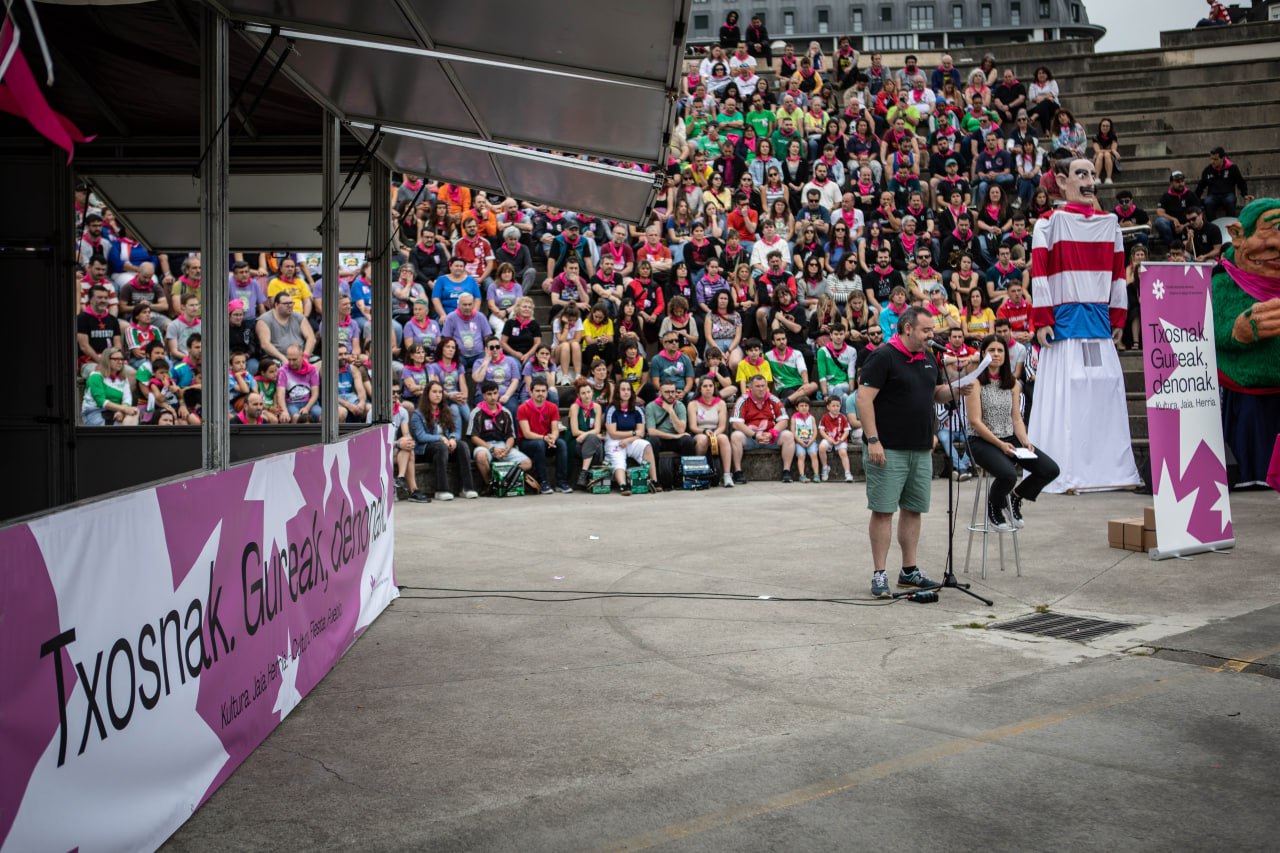Society
Environment
Politics
Economy
Culture
Basque language
Feminism
Education
International
Opinion
tuesday 03 june 2025
Automatically translated from Basque, translation may contain errors. More information here. 
For working women
- The biscuits. Living memory is a cultural project for working women, developed by several women: three artists, a sociologist and an architect. The ancestral situation of working women has been explored in order to know the current one. To this end, the focus has been on the employees of the centenary company Galletas Artiach in the Bilbao estuary, who became a symbol of industrial development, specifically the development of the Deusto riverbank.
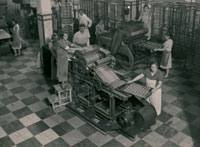
The project is based on biscuits from the industrial society in search of current biscuits. To achieve this objective, the most modern technological means have been used: Internet, video and a book; and also a traveling exhibition aimed at those who do not have the Internet.
Specifically, last April a simple commemorative and festive event was held in the Península del Ribera de Deusto (Bilbao), in the former Artiach biscuit factory. The 100th anniversary of the factory was celebrated and, above all, they recalled the working women and their importance in the economic and social development of Bilbao in the 20th century. However, the most important thing about this event was the presentation of a cultural project, a project that goes far beyond the fact that those Artiach’s 20th century biscuits remain in our memory: The biscuits. A living memory. The initiative has been created by the group called Pripublikarren, at the request of the Department of Urbanism and Environment of the City Council of Bilbao and the Department of Women and Development Cooperation, and the majority of its members are women from very different areas.
The cultural project
In order to ensure that women are treated fairly in the world of work, this cultural project aims to extract and recover from the oblivion the work, the demands and the struggle carried out by many women, who unwittingly became a representative example of a historical moment – industrial society. The project is also an excuse to discuss women’s work today. According to the promoters, it is a project to remember and find those women who built the history of the city of Bilbao through personal stories, which have become a symbol of industrial development and, to be precise, of the development of the riverbank of Deusto. Women also dominated the industries related to the activities of weeds, cod factories, jute factories, hemp braiding, sailing sewing and other auxiliary industries related to the shipbuilding industry. According to the people in charge, this project wants to take into account the work done by all these women, taking the biscuits as a symbol.
This is an ambitious project, open to the whole society, which basically has three very specific applications: a book, a website and a documentary video.
Book, Internet and itinerant exhibition
The Galleteras de Deusto, presented last April, is already on the street. Women and Work at the Bilbao Industrial. It was written by Marta Zabala and Maite Ibáñez, who collected the industrial activity of these women through images and testimonies: their profession, their relationship with machines, strenuous working hours, salaries, and their relationship with employers and managers.
The social environment of the biscuits has not been forgotten, as well as the existence of houses, places of leisure and social relations among others.
We can also find the documentary video www.pripublikarrak.net/blog made by the Pripublikarra group on the website. It is 18 minutes long and the composer and violinist Aranzazu Calleja has put the music to it. The video, through interviews with former and current biscuits, includes testimonies about women’s work and the labor chain. And to help with all this, old photographs that show the most important moments of the evolution of the biscuit company are exposed.
There is also a website (www.galleteras.net) on the Internet that explains this project in full and in a participatory manner in Basque and Spanish. It can be said that it is a living archive that brings together workers from the industrial era – taking the biscuits as symbols – and workers from the post-industrial era. It is a living page that provides a path of participation and mutual enrichment.
There are still many people who do not have access to the Internet. But this has also been taken into account by those responsible for the project, who plan to install a traveling exhibition that will tour the cultural centers of Bilbao to make the project known to the general public. There will be a documentary, a book and some photos.
Knowing the Past Activating Today
It is not the intention of those responsible for this interesting project to make a simple collection of photographs that show the past of working women – in this case the biscuits of Deusto, the cigarette makers of San Sebastián, the cotton makers of Andoain (Gipuzkoa) or the loaders and circuses of the Bilbao estuary. Their goal is to know the past to activate the present day. Thus, they offer different formulas on the web and take advantage of the opportunities provided by the Internet to stimulate a constant debate on the subject.
For example, a series of questions have been put on the Internet to allow an open debate about women and work in the post-industrial and industrial era. Here are the questions: “How do you balance work and work? What would today’s cookies be like? Does temporality only appear in the field of work or does it extend to the model of day or life? What is the importance of women’s work in the city of Bilbao? Is the place of residence of working women also a place of work? The workshop has been a place of work and protest so far, but given the current temporality, how to solve this lack of meeting places? What are the main areas of work for women today? What is the current opportunity to file complaints through both the association and the union? “What is the status of women today?” On the
other hand, to observe the differences between the two periods, the website of this cultural project presents the answers to two questions given by some women or groups who work on gender issues or have experience in this subject. These are the questions: What is the current employment situation of women? And, compared to the industrial age and the service society, how has the employment situation of women changed? As you can see on the website of the biscuits, they have all answered these two questions: Authors and researchers Remedios Zafra; philosophers and writers Maite Larrauri; disturbing networks, cultural producers and experts in new techniques Marta Pérez; and Medes, a feminist group of young women entrepreneurs who collaborate with the group Plazandreok.
Loaders, cyclists, cigars and cotton makers
The initiative has not been limited to the Deusto biscuits, but also includes the cases of other women who once fought for the improvement of working conditions. By clicking on the links on the Biscuits website, you can get to know the reality of the Bilbao estuary’s loaders and loggers or the Guipuzcoan cotton and cigarette makers. You can also see documents and videos that cover some aspects of this reality in the workplace and in society.
Dockers and forklifts were key to the port of Bilbao’s work performance. They were made by women, because if they had to be made by men or florists, they would be more expensive for the consignment houses. There were three types of shippers in 1890: those in charge of carrying money from commercial transactions, those carrying cod from the pier to the warehouses and those carrying sand and ore. This last type was the most underrated within the guild, and the workers who worked on what they called “venaqueras”. They loaded the mineral and sand from the dock barge. However, the work of the circuses was worse. They made groups of about four women and put the barges in line and dragged them through the baths they carried in their bodies tied with straps. Since the large ships could not pass through Olaba, it was necessary to transport the goods on barges to the nearest Arenal docks. In 1905 this type of work was still carried out in the port of Bilbao.
The cigarette makers were women who had been working in Tabakalera in San Sebastián since almost their childhood – today they have turned the factory into a cultural centre. Seven hundred women worked in Tabakalera, and in a video you can see the conditions in which they worked. On the same website you can also find references to the Andoain cotton growers (1857-1965). In fact, 55 of the 330 employees who worked at the Andoain cotton factory were honored this year in San Sebastián.
Most read
Using Matomo
#1
#2
Gorka Peñagarikano Goikoetxea
#4
Gorka Bereziartua
Newest
2025-06-03
Gorka Peñagarikano Goikoetxea
82% of Israelis support forced eviction of Gazans, according to a survey
Support for genocide
Within the State of Israel, there is considerable support for the latest operation. Haaretz has released the results of a survey conducted for the Pennsylvania State University, which shows that 82 percent of “Israelis” support the comprehensive... [+]
2025-06-03
Euskalerria irratia
Pictures of Sabino Cuadra: “It was a pre-planned operation of the San Fermin of 78”
‘Sanfermines of 1978. The book ‘The Victims’ will be published by the publishing house Chalaparta. It brings together those responsible and responsible for the death of Germán Rodríguez.
2025-06-03
Gedar
'La Infilada' receives a Covite award
The producer María Luisa Gutiérrez has received the XXIV of Covite. The International Prize, which he dedicates to "all victims of terrorism".
2025-06-02
Jon Fernández González
Falces’ Basque model is requested and the Government of Navarre rejects
Eleven families have applied to the D model in the public school. The Centre has given its consent, as well as the City Council, but has rejected it on the grounds of "lack of space" by the Government of Navarre.
2025-06-02
Eneko Imaz Galparsoro
After close competition, far-right candidate Nawrocki wins Poland’s presidential election
After a second halt in the first round of presidential votes, the independent candidate takes a one-point lead over Trzaskowski, the candidate of the European superficial party currently in government. It has not been clear until the official results have been published which... [+]
2025-06-02
Jon Fernández González
Smoking will be banned in public spaces in the Northern Basque Country where children meet
The ban will take effect on July 1 in various public spaces, such as beaches or parks. Citizens who do not respect the rule will be fined 135 euros.
2025-06-02
Ahotsa.info
The Government of Navarre is asked to cancel its contracts with Israeli companies
Some 5,000 people gathered in the demonstration called this Sunday by Yala Navarra and BDS in Pamplona to demand the rupture of relations with Israel. They also call for the promotion of a boycott against Navarrese companies and the Government of Navarre that maintain interests... [+]
2025-06-02
Eneko Imaz Galparsoro
Israel Kills 32 People at Humanitarian Aid Distribution Centre in South Gaza
Israeli army tanks and drones have begun attacking the Palestinians attending the centre, killing 31 people and injuring 115. Following Israel’s acceptance of the U.S. proposed ceasefire, Hamas has called for the addition of certain conditions: achieving a permanent ceasefire,... [+]
2025-06-02
Jon Torner Zabala
The Basque national team in the League of Nations: a "historic" event awaiting the meeting of the players of the seven countries
The Cesta Punta League of Nations is underway. Between June 6th, several teams will compete in the Jai Alai Stadium in San Luis, including the Basque team. This is “historic” because, as the organizers of the tournament have pointed out, the Basque national team will play... [+]
2025-06-02
ARGIA
The Bioterra fair will take place this weekend in Irún, a meeting point to “build a more ecological lifestyle”
On the 6th, 7th and 8th of June, Ficoba will be flooded with ecological products and services, 117 companies that have certified their “commitment to sustainability”. In addition to the fair, a rich program has been prepared and there will be several workshops and... [+]
Hundreds of people represent the bloody daily life of Palestine in the Beautiful Parties
Organized by the People’s Pro-Palestine Initiative, the bloody daily life of Palestine was represented today at noon in the Beautiful Parties. With their bodies covered from top to bottom with white sheets, hundreds of people lie on the ground, alluding to the terrible... [+]
2025-06-02
Eneko Imaz Galparsoro
Txosna launches a collection of signatures to declare intangible heritage of the Basque Country
Several chiringuitos and festive committees of the Basque Country have convened a meeting on Saturday in the Miribilla district of Bilbao. They emphasize that the chiringuitos are not "empty bars to serve drinks", but the "heart" of popular festivities. That's why, Txosnak. Ours,... [+]
2025-06-02
Gorka Peñagarikano Goikoetxea
Let's shut up, even for a moment.
In the waiting call to the health center, in the corridors of the supermarket, in the changing rooms of the sports center... We fill moments that can be silences with sounds. Why, for what? Does silence disturb us? For the internal considerations that you can create for us?
The... [+]
Eguneraketa berriak daude









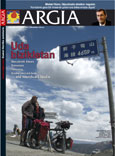


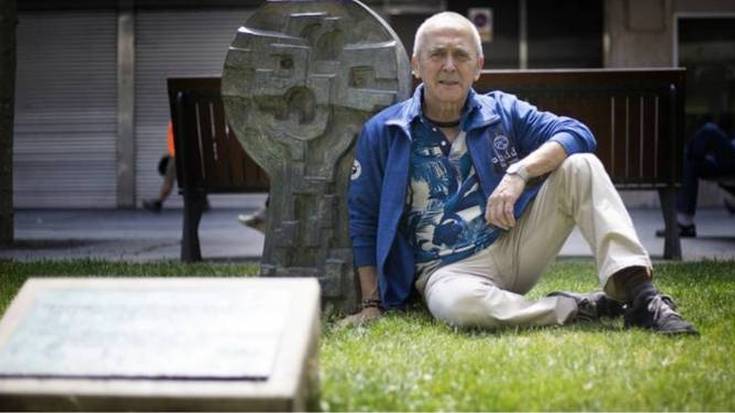

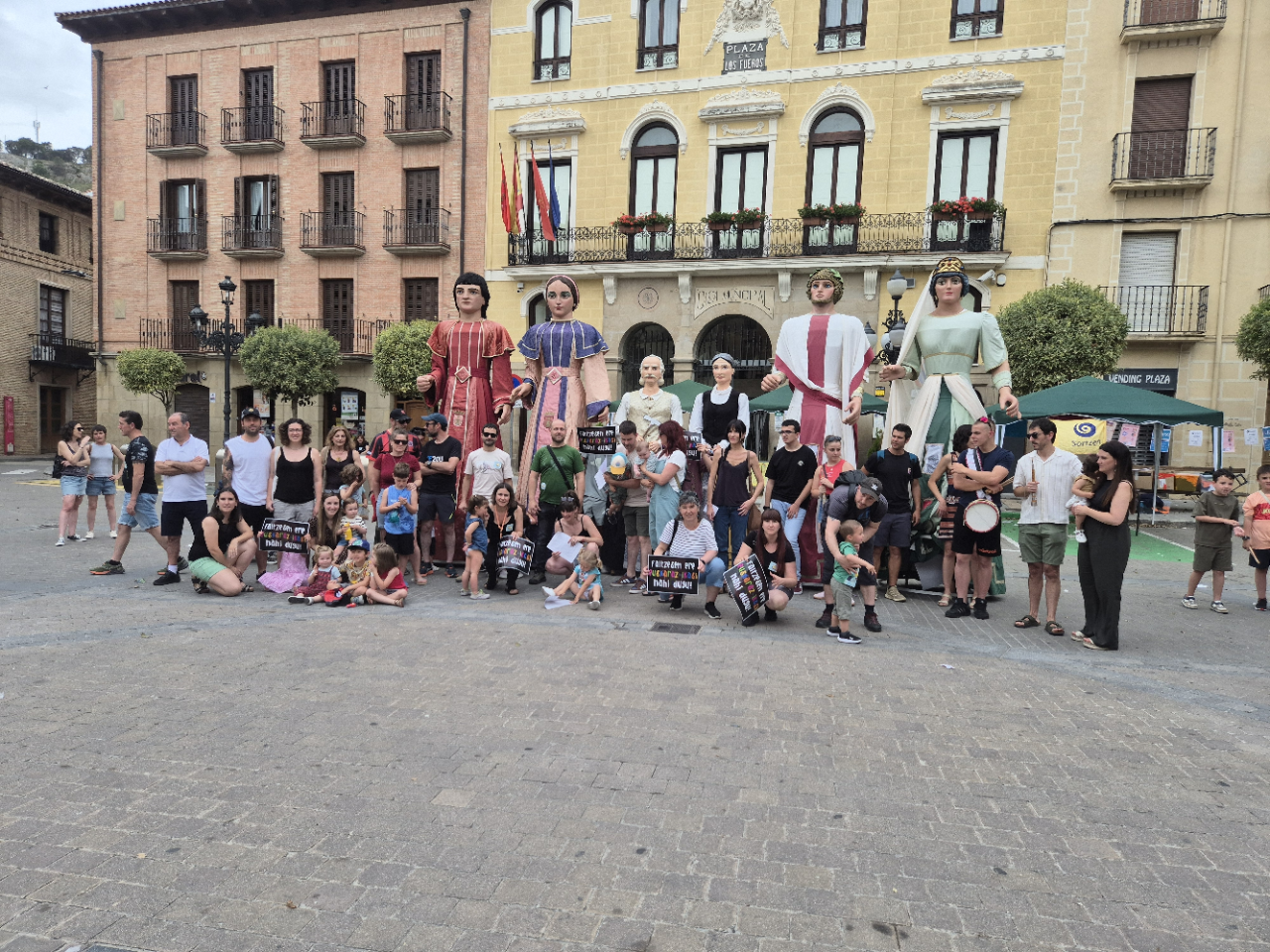

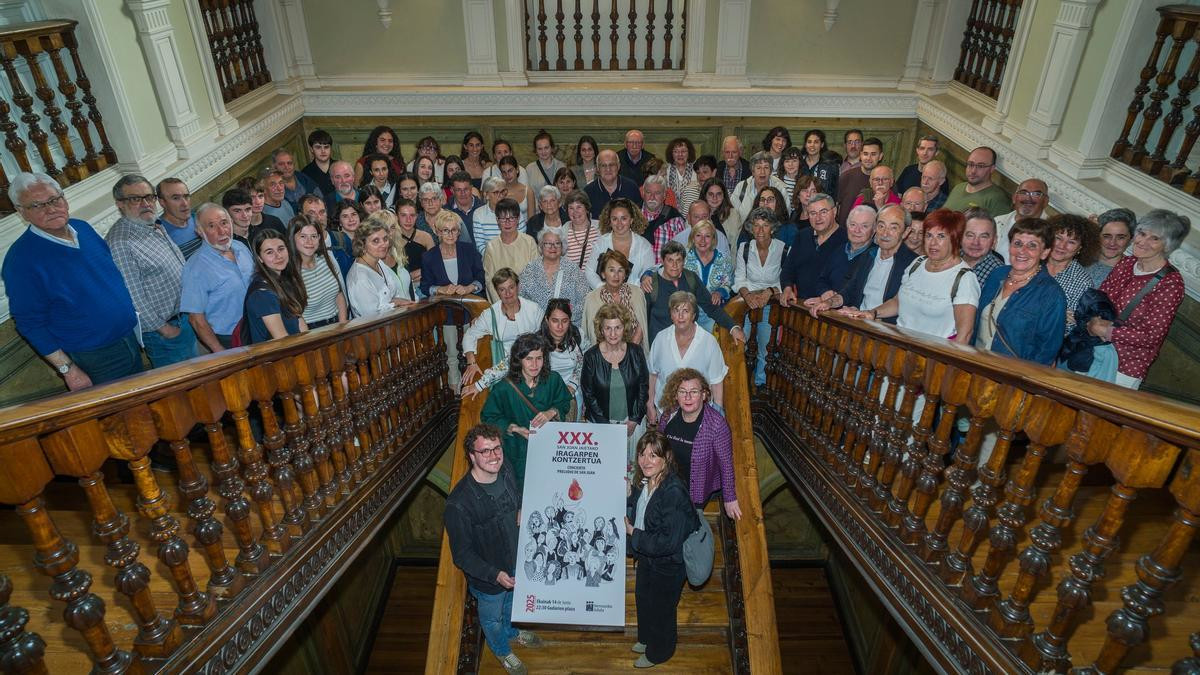


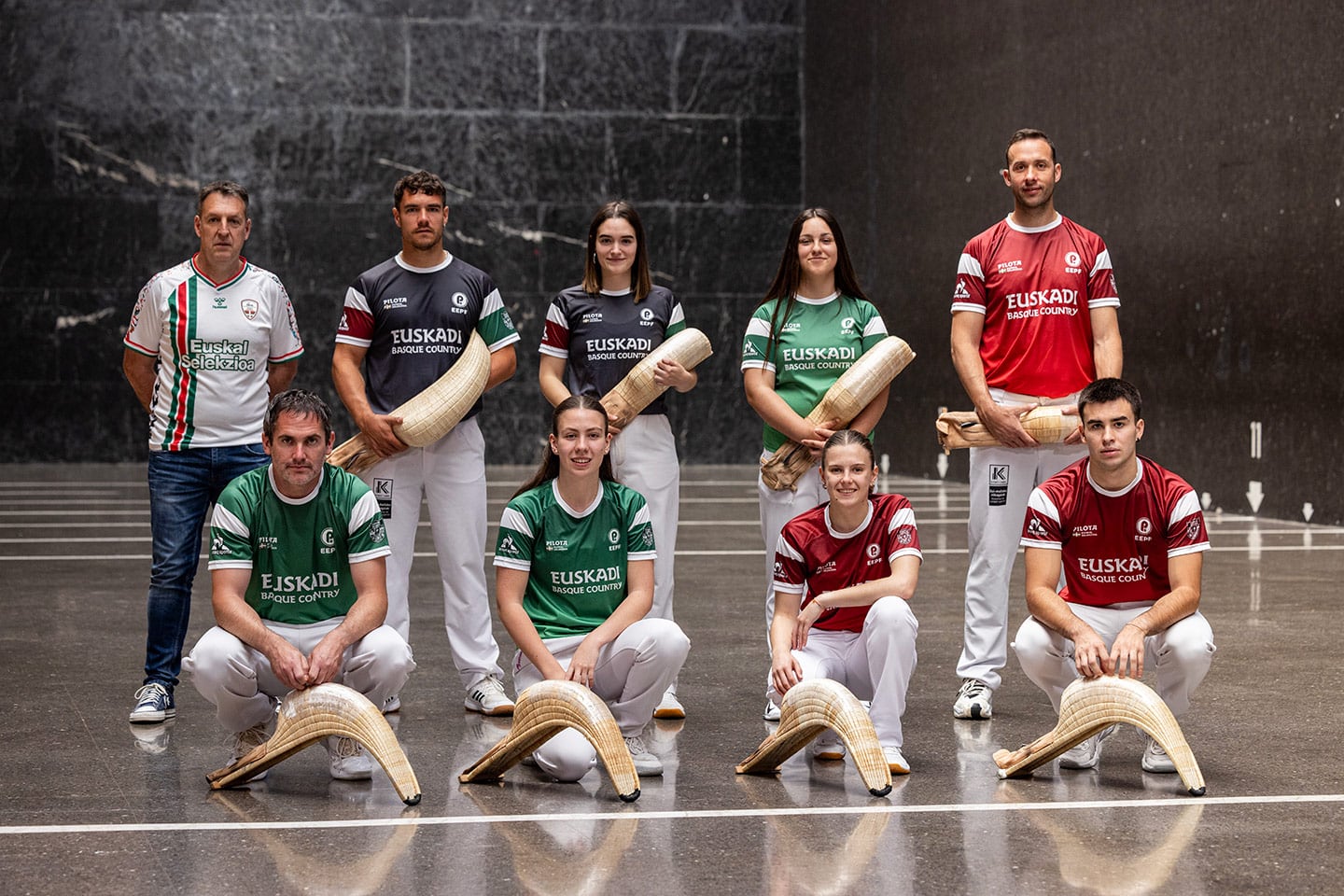
-M.jpg)

